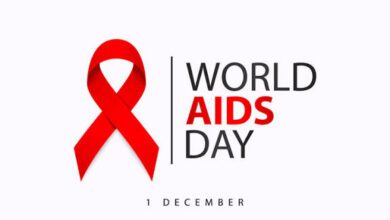WHO Urges African Leaders To Keep Malaria High On Agendas

The World Health Organisation (WHO) has called on African leaders to keep malaria high on their agendas as they allocate resources to health.
WHO Regional Director for Africa, Dr. Matshidiso Moeti gave the call on Tuesday, April 25, 2023 in a message delivered during the Commemoration of the 16th World Malaria Day.
Dr. Moeti said malaria had been a stubborn public health enemy and only in 2021, killed 619, 000 people, of whom approximately 96 percent lived in Africa, adding that it is 6-20 times more likely to spread in mosquito-prone environments than the Omicron variant of sars-cov-2.
Also, WHO African Region alone accounted, in 2021, for an estimated 234 million malaria cases and 593 000 deaths, thus bearing the heaviest burden of over 95 percent of cases and 96 percent of deaths globally.
“Our Region, therefore, continues to be hardest hit by this deadly disease partly because too many people do not have access to preventive and curative interventions. Nearly 30% of the population in most African countries cannot access essential health services, and most people face unacceptably high expenditures on health care. Significant inequities affect the most vulnerable, young children and women, whereas about 80% of malaria cases and deaths occur in children under five,” she said.
Dr. Moeti informed that, in terms of reduction in malaria incidence, eight countries are on track to meet the 2025 Global Technical Strategy target: Cabo Verde, Ethiopia, the Gambia, Ghana, Mauritania, Rwanda, South Africa and Zimbabwe.
“But 15 countries achieved insufficient reduction while 20 have witnessed stagnation or increase in cases. Ten countries saw increases in malaria deaths. The pace of progress must be accelerated if we want to achieve the set targets for 2025 and 2030,”she said.
“Malaria has been a stubborn public health enemy. In 2021 it killed 619 000 people, of whom approximately 96% lived in Africa.
”It is 6-20 times more likely to spread in mosquito-prone environments than the Omicron variant of sars-cov-2.
“The disease was once endemic across most of the world, sweeping through the Americas in the 1600s and reaching as far north as the Arctic coast and east as Japan. But we can now save millions of lives each year from sickness and death caused by malaria following novel progress toward the disease’s elimination.
“Today marks the 16th World Malaria Day and an appropriate time for us to take stock of malaria’s devastating impact on people’s lives and economic development in this Region.
“Concerted efforts yield positive results. In 2021, because of the joint actions by malaria-affected countries and partners, malaria deaths decreased compared to 2020 despite the consequences of the COVID-19 pandemic.
“That effort is echoed in this year’s theme: ‘Time to deliver zero malaria: invest, innovate, implement”, she stated.
Speaking further, the WHO African Regional Director said, “in terms of progress, a solid national-level commitment was demonstrated despite the pandemic and led to many successes: About 75% of the planned 171 million insecticide-treated bed nets (ITNs) were distributed. The seasonal malaria preventive treatment was further expanded, reaching nearly 45 million children in 15 African countries, a significant increase from 33.4 million in 2020, while malaria testing and treatment services were maintained. More than 1.6 billion malaria cases and 11 million malaria deaths were averted in the WHO African Region from 2000-2021.
“In addition, the first malaria vaccine recommended by WHO to prevent malaria in children (also known as RTS,S) is saving lives. In Ghana, Kenya and Malawi, where nearly 1.5 million children have received the vaccine through a WHO-coordinated pilot programme, there is a substantial decrease in hospitalizations for severe malaria and a drop in child deaths. At least 28 countries in Africa have expressed interest in introducing the vaccine, with some additional countries to start in early 2024.
“The unprecedented demand for the first malaria vaccine is considered an opportunity to bring children back to clinics to catch up on missed vaccines and child health interventions – including reinforcing the need for children to sleep under ITNs every night. It is critically important to deliver this vaccine to children at risk: WHO, Gavi, UNICEF, and other partners are working to increase supply as rapidly as possible to protect more vulnerable children and save more lives.
“Overall, in terms of reduction in malaria incidence, eight countries are on track to meet the 2025 Global Technical Strategy target (Cabo Verde, Ethiopia, the Gambia, Ghana, Mauritania, Rwanda, South Africa and Zimbabwe).
“But 15 countries achieved insufficient reduction while 20 have witnessed stagnation or increase in cases. Ten countries saw increases in malaria deaths. The pace of progress must be accelerated if we want to achieve the set targets for 2025 and 2030.
“While congratulating our Member States and development partners for achievements over the last year, we are greatly concerned that malaria deaths remain unacceptably high, and cases have continued to increase since 2015.”
According to her, “the WHO African Region alone accounted, in 2021, for an estimated 234 million malaria cases and 593 000 deaths, thus bearing the heaviest burden of over 95% of cases and 96% of deaths globally.”
“Our Region, therefore, continues to be hardest hit by this deadly disease partly because too many people do not have access to preventive and curative interventions. Nearly 30% of the population in most African countries cannot access essential health services, and most people face unacceptably high expenditures on health care. Significant inequities affect the most vulnerable, young children and women, whereas about 80% of malaria cases and deaths occur in children under five.
“To reverse these trends and accelerate progress, we must rethink and revitalize our strategies by investing, innovating and implementing smartly.
“On investments, we are responsible for increasing funding for malaria interventions through primary health care approaches so that malaria services are accessed by the most vulnerable populations wherever they are. In 2021, endemic countries and partners mobilized only 50% of the estimated US$ 7.3 billion required globally to stay on track to defeat malaria. We, therefore, call on our Member States to keep malaria high on their agendas as they allocate resources to health,” she further said.






